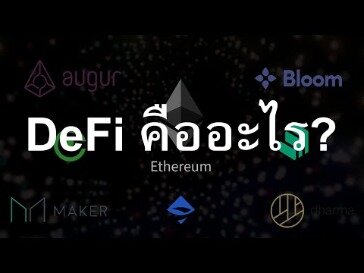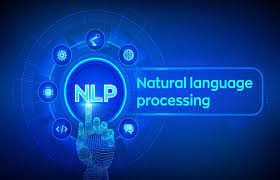Content
Businesses must avoid innovation fatigue and continue the important task of digital transformation. It is worth noting that DeFi has been built mainly on the Ethereum blockchain, just as initial coin offerings were in 2017. Whatever its future, DeFi is a fast-growing industry and deserves urgent regulatory attention. Such exchanges must adhere to FATF’s “know your customer” requirements, where the platforms are expected to know the parties transacting on them. FATF requirements do not cover financial activities occurring on decentralised systems.
To illustrate what DEFI is (and what it definitely is not!) Let’s use a simple example. DEFI (pronounced deef-eye!) refers to any financial system that has been structured to operate without a centralised function. Konstantin Anissimov, of digital currency exchange CEX.IO, says that Ethereum 2.0 will eventually process 15,000 transactions each second, outpacing any centralised payment systems such as a bank. This is a burgeoning industry which allows users to lend and borrow money in a peer-to-peer context without banks or other middle-men. It allows users to deposit cryptocurrencies that are then borrowed by other people who pay interest to the lenders.

Its report stated how in 2020 alone digital assets and its traded products made up two-thirds of its investment fraud reports. According to the FMA, crimes committed in this category usually include fake stock offers and bogus ICOs. Despite all these, there remains a growing number of digital asset scams advertised on various social media platforms. Although one cannot wholly regulate the digital currency world, the steady rise in digital assets-related crimes is cause for worry.
Bima Strategy Roundtable
“DeFi is the story of 2021,” says Matt Hougan, chief investment officer for Bitwise Asset Management. DEFI projects are being spun up in an environment aligned with crypto-currencies and digital assets and as such have limited regulation applied to them.
Will ethereum price go down?
As of today, Ethereum price is dropping again, currently once again sitting at $1593, and currently still heading down. At the same time as the price was crashing, Binance had one of its withdrawal suspensions that prevented users from withdrawing ETH and Ethereum-based tokens.
Second, decentralized lending models without credit checks on borrowers introduce default risk to lenders. In the case of Compound, this risk is mitigated since the “lenders” are an aggregated pool of assets, while individual borrowers have borrowing limits based on the value they have staked to the network.
Decentralised Finance Calls Into Question Whether The Crypto Industry Can Ever Be Regulated
The announcement by Tesla moved the price of Bitcoin up by 14%, taking it to a new all-time high of $44,801 as at the time of the said report. According to BitPay, their cardholders in the United States can now purchase from the Apple store with the digital currency in their BitPay wallet using their prepaid MasterCard. They have also announced that support for Google pay and Samsung will be added later this year.
All this happens all Tesla invests $1.5B in Bitcoin with plans to accept payments in Bitcoins shortly. The project is said to have begun in 2018 when Musk first tweeted about Bitcoin and other digital currencies. Not just him, but several other big investors seem to have taken an interest in the digital currency community. Lately, investors like Bill Miller and Paul Tudor Jones II are advocating for digital currencies like Bitcoin for use against inflation.
DeFi – decentralised finance – refers to the emerging category of digital, peer-to-peer financial services technologies that enable trading, loans, interest accounts, and more. In digital asset exchange, low liquidity increases the conversion difficulty and also hikes the price.
FATF only covers centralised systems or virtual assets service providers such as cryptocurrency exchanges. These are licensed businesses that allow customers to trade crypto or digital currencies for other assets, such as fiat currencies like the pound sterling, US dollars and euros. This is further complicated by the fact that DeFi transactions typically operate globally, and when regulatory standards are created for this sector in one country, platforms may gravitate to countries with less strict ones. There is also the challenge of global coordination, especially as countries are at varying stages of financial regulatory development. While advanced economies such as the UK and US have stronger regulatory frameworks, most in developing economies do not.
Fintech: The Financial Sector disrupter
Given this directive, Binance temporarily suspended naira deposits on Friday the 5th without a stipulated time for when the suspension will be lifted. It was believed that the CBN’s action would cause an on/off-ramp in the impact on fiat currency. The directive, however, did not affect peer-to-peer platforms, which were where a majority of the country’s digital assets trading is done. As traders prepared for that weekend, attention was on Bitcoin as it attempted another bull run. As the use of digital currencies continues to gain prominence, institutions like BNY Mellon, the largest custodian bank, plans to allow customers custody of digital assets by year’s end. Although its partners remain unknown, many believe that this plan will open up more decentralized finance opportunities shortly. As seen earlier in the same week, payment facilitators like MasterCard also intend to support the transaction of digital assets directly on their already massive network.

Such risks includes the risk that you may be following/copying the trading decisions of possibly inexperienced/unprofessional traders, or traders whose ultimate purpose or intention, or financial status may differ from yours. Past performance of an eToro Community Member is not a reliable indicator of his future performance.
Content on eToro’s social trading platform is generated by members of its community and does not contain advice or recommendations by or on behalf of eToro – Your Social Investment Network. eToro is the world’s leading social trading platform, offering a wide array of tools to invest in the capital markets. This information is for educational purposes only and should not be taken as investment advice, personal recommendation, or an offer of, or solicitation to buy or sell, any financial instruments. This material has been prepared without having regard to any particular investment objectives or financial situation, and has not been prepared in accordance with the legal and regulatory requirements to promote independent research. Any references to past performance of a financial instrument, index or a packaged investment product are not, and should not be taken as a reliable indicator of future results. eToro makes no representation and assumes no liability as to the accuracy or completeness of the content of this guide. Make sure you understand the risks involved in trading before committing any capital.
Digital Twins
Despite these growing concerns, many continue to embrace the digital currencies space. Many central banks are launching their own Central Bank Digital Currencies to show just how much potential these digital assets have. One of those willing to ride with the trends is Morocco’s central bank Bank-Al-Maghrib . Sources indicated the BAM has been investigating the benefits of having its own CBDCs. This new development came four years after its ban on digital assets in the country. According to the New Zealand liquidator, Grant Thornton, it gave no authorization to move funds, and the incident was being investigated.
The ideal candidate will have an immense interest in digital assets, and experience completing DeFi projects and/or experience deploying systematic crypto trading strategies. Kenanga Investment Bank Berhad, one of Malaysia’s largest financial services companies, is moving into the cryptocurrency industry with a new investment and signed a conditional agreement to acquire a 19% equity stake in a licensed exchange. Unlike regulated institutions, some DeFi protocols are accessible to users without KYC and credit checks. This introduces the risk that bad actors, such as criminals or US-sanctioned persons, may leverage a platform to borrow or lend funds.

DeTech Studio Limited is developing a decentralised finance technology platform called “YOP” that makes it easier for less technical users to engage with Decentralised Finance (“DeFi”). YOP’s primary focus is delivering access via a smartphone app (the “App”), which should make access to and interacting with DeFi services more straightforward and user-friendly. As part of this process, a new token , will be created which will be issued to users to engage with the YOP platform. The token will form the basis of the YOP protocol, facilitating engagement with smart contracts on the Ethereum network. DeTech’s investment return is expected to be generated through fees from transactions and appreciation in the value of YOP tokens.
For example, if a user sent 1,000 USDC worth $1,000 and the Compound network has set the CF for USDC at 75%, the user can borrow $750 worth of any other crypto that Compound supports. Reef will support AVAX-affiliated tokens and financial primitives through the basket engine, providing users with more investment opportunities. Reef users will also be able to channel capital into Avalanche to maximize savings and earn higher interest in stablecoins launched natively on AVAX through yield farming baskets. Reef Finance is integrating with the Avalanche blockchain , enabling users to access decentralized finance applications in the Avalanche ecosystem directly through Reef’s platform. The project is planning to roll out initial features on Avalanche in early Q1 2021. Profit before tax narrowed to £27,450 from £242,282 the year before, reflecting a smaller gain this time round in the “fair value” worth of its financial assets.
Between 2014 and 2015 he was involved in creating a fabbanking.com a digital bank between Asia and Africa as Chief Commercial Officer and Marketing Officer responsible for all legal, tech and business development. Between 2009 and 2010 he was the founder of one of the world first fintech, social trading platforms tradingfloor.com for Saxo Bank.
- They have also announced that support for Google pay and Samsung will be added later this year.
- We also highlight areas for institutions to consider in light of recent guidance by the Office of the Comptroller of the Currency , which points to the possibility of regulated institutions interacting with autonomous, decentralized financial protocols in the future.
- According to the New Zealand liquidator, Grant Thornton, it gave no authorization to move funds, and the incident was being investigated.
- While many continue to state concerns about using digital assets for illicit purposes, others believe that there is still room to develop better policies regarding digital assets and their uses.
This goes hand-in-hand with the massive growth of the DeFi tokens market, which soared to $29.394B in total Market Capitalization. Some of the most prominent risks present in the DeFi field come from issues regarding tech smart contracts, cybersecurity, governance, user error, market volatility, lack of insurance on loans & potential failure of the price mechanism.
His attorney then stated that his client was ready to accept full responsibility for his action and do his best to make amends. Meanwhile, Ethereum continued to make new highs, reaching as high as $38,332 but then lost its momentum as the weekend closed in. The loss in speed was attributed to the diversion of traders to other high-flying digital assets. While the digital assets were making record highs, the Central Bank of Nigeria issued a directive to all banks to close all digital asset-related accounts in the country. Stating that digital currencies were not legal tender, and all banking, non-banking and financial institutions were among those given the directive.
Additionally, the book calls for revisions to the law to ensure that a future CBDC can operate successfully. Given that US banks are permitted to receive, hold, and settle transactions in USD-backed stablecoins, banks will likely increase their interaction with DeFi protocols in the future. Retail and institutional customers of banks and other financial institutions may demand products and services only available in the context of these protocols. It enables counterparties to conduct financial transactions executed by software in a “trustless” manner, meaning without validation by intermediaries. It enables trustless, peer-to-peer value transfer by means of a distributed database and decentralized nodes that independently validate transactions by means of cryptographic protocols.











